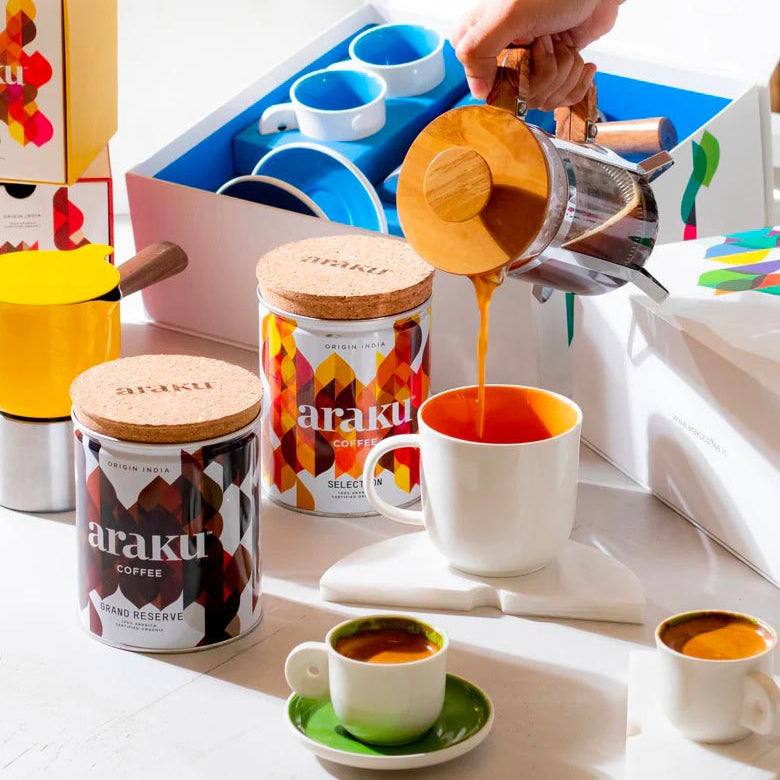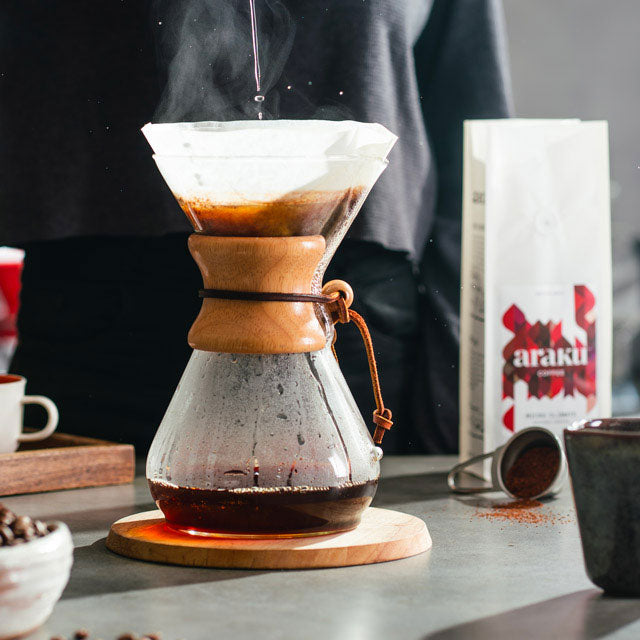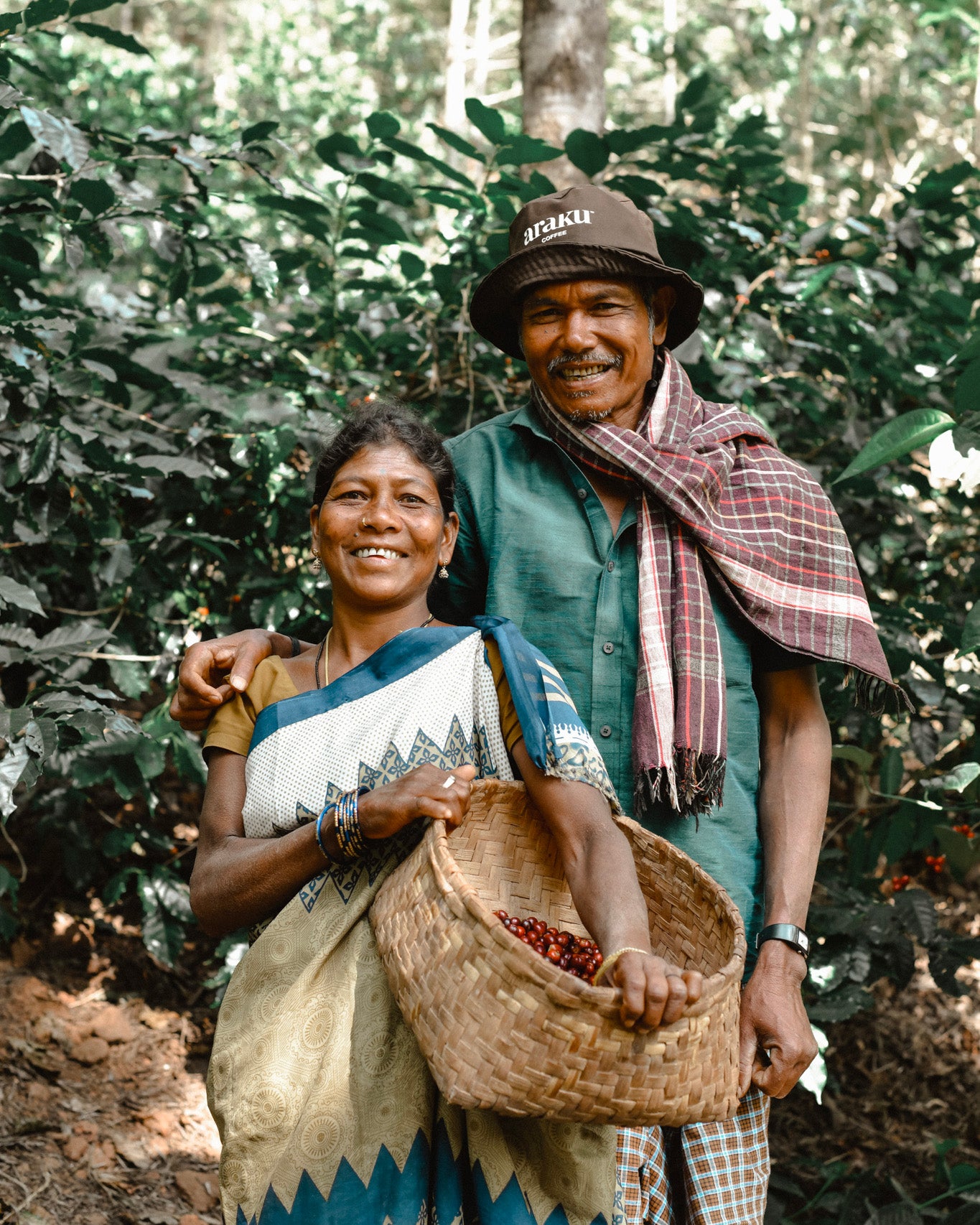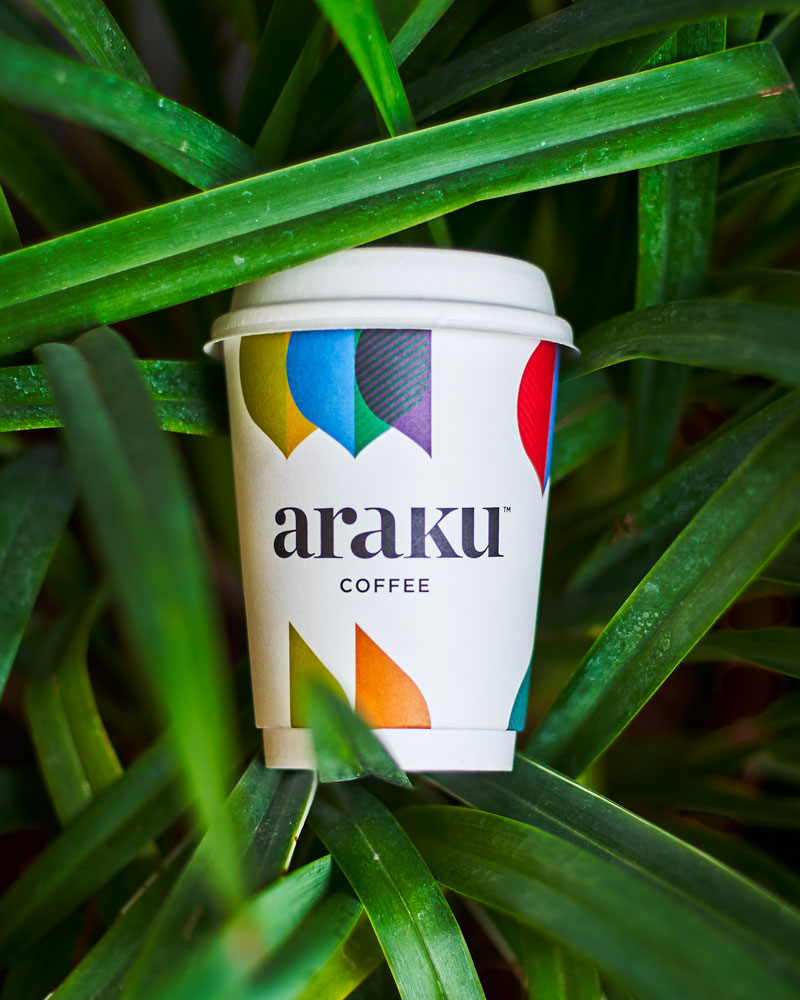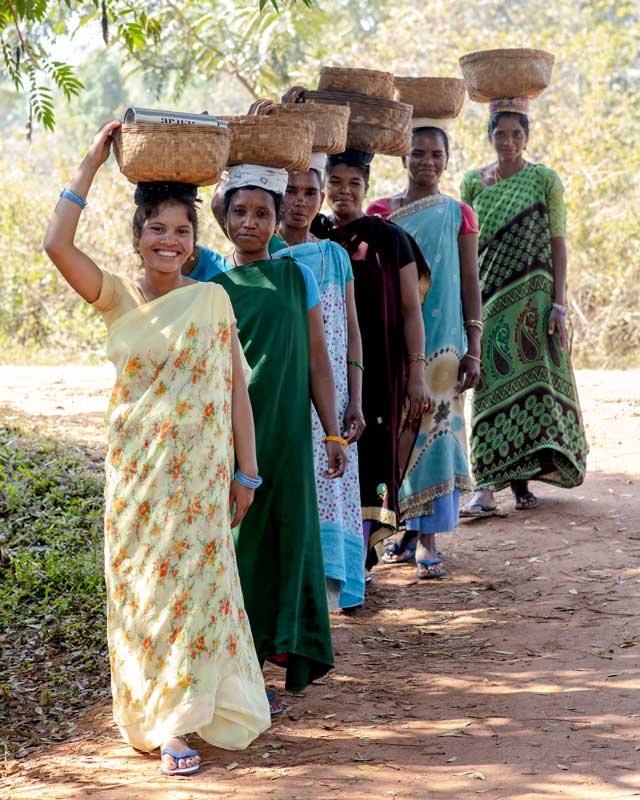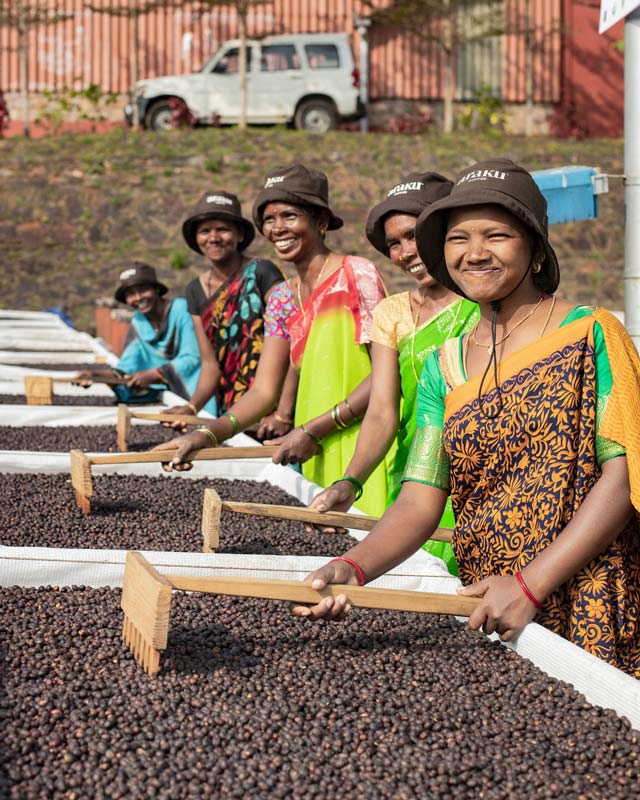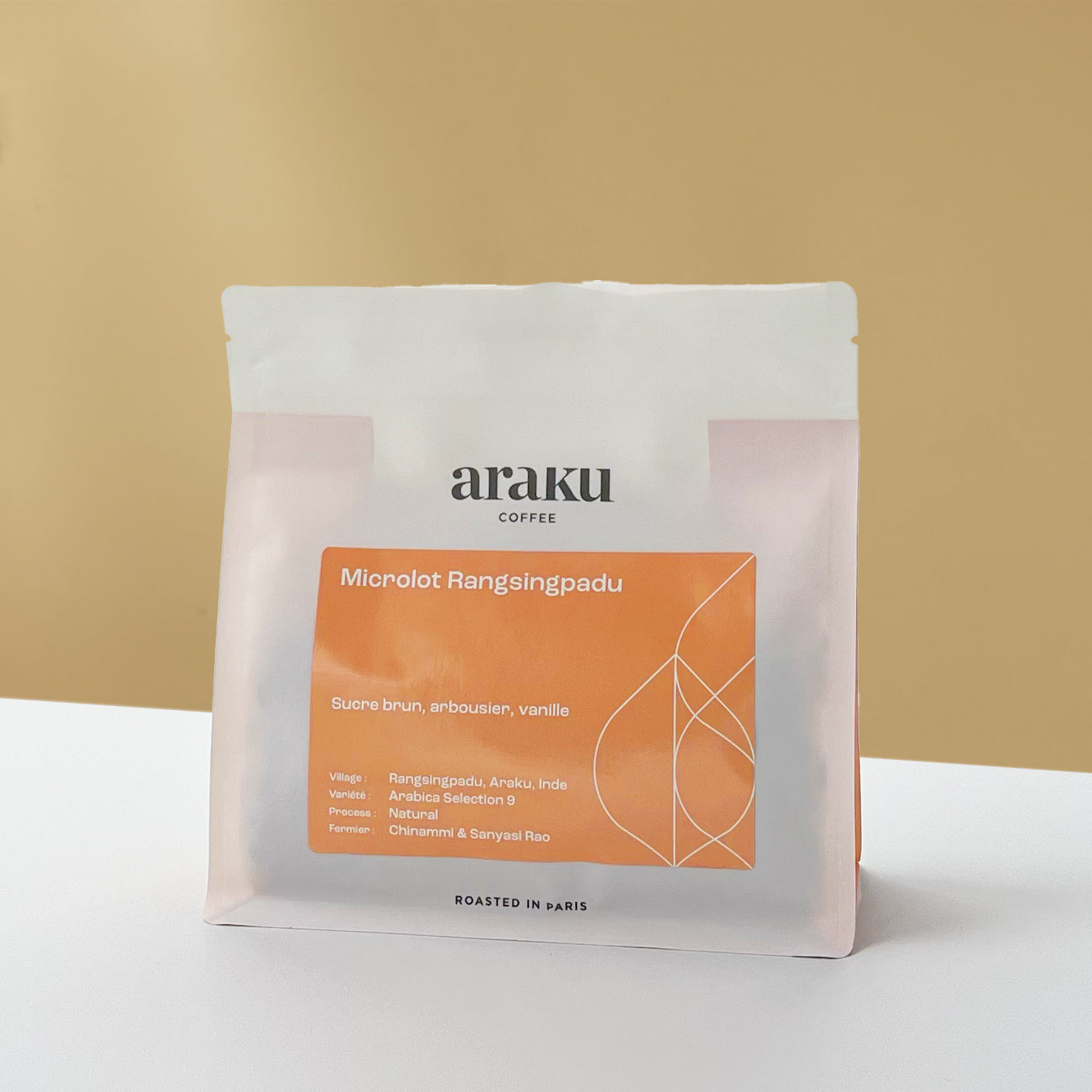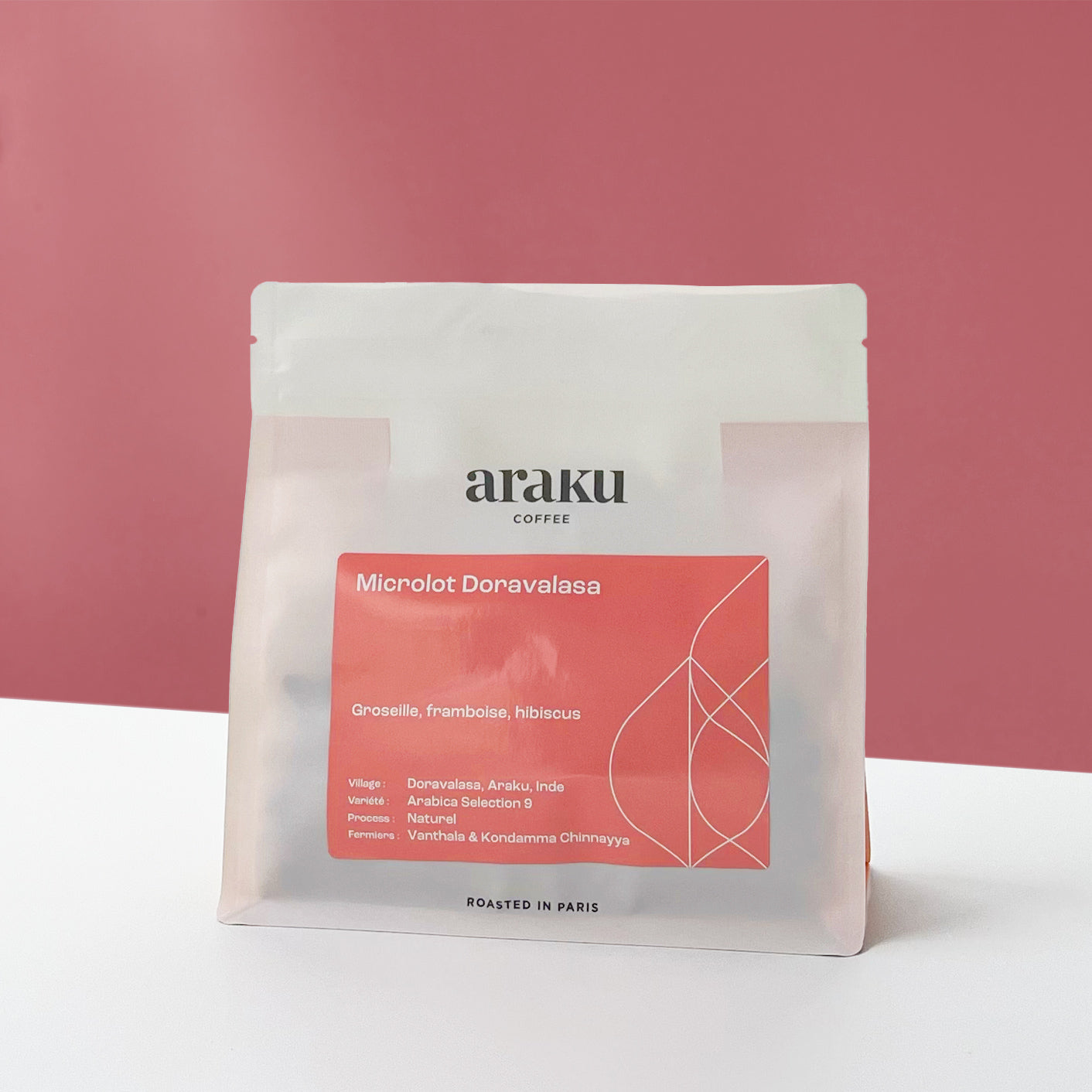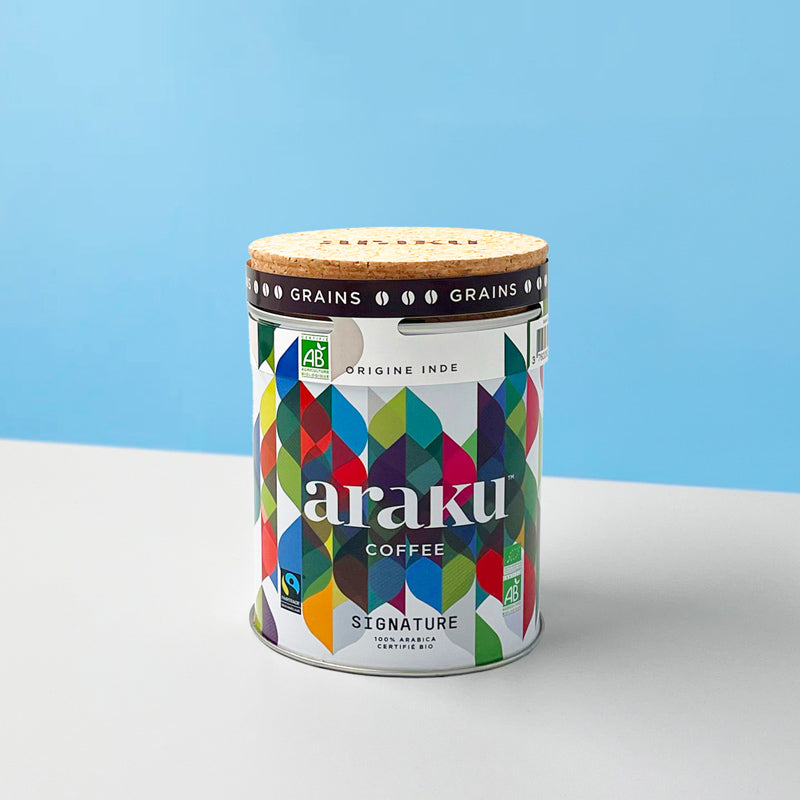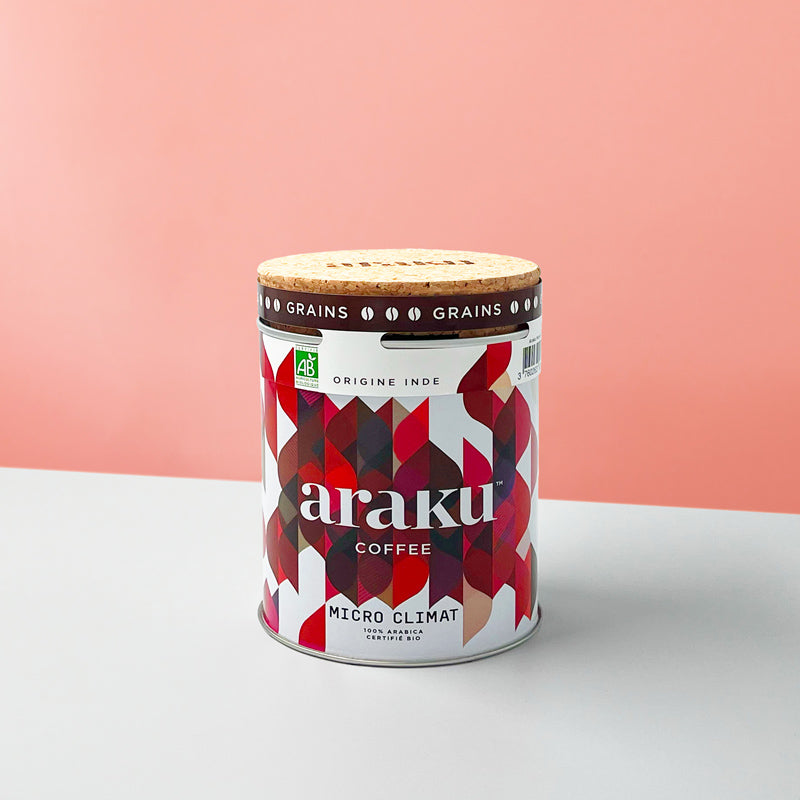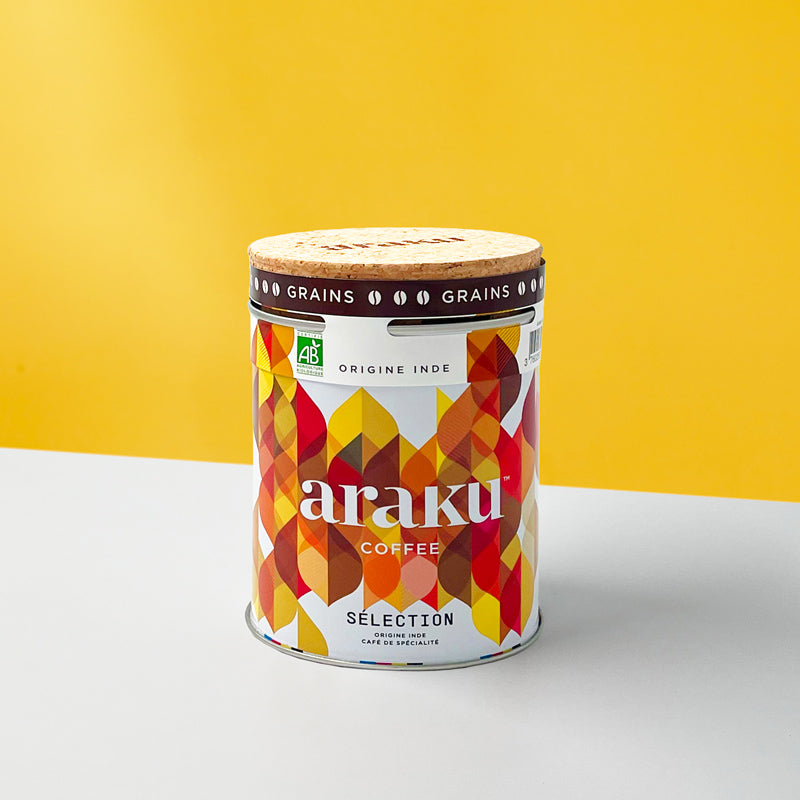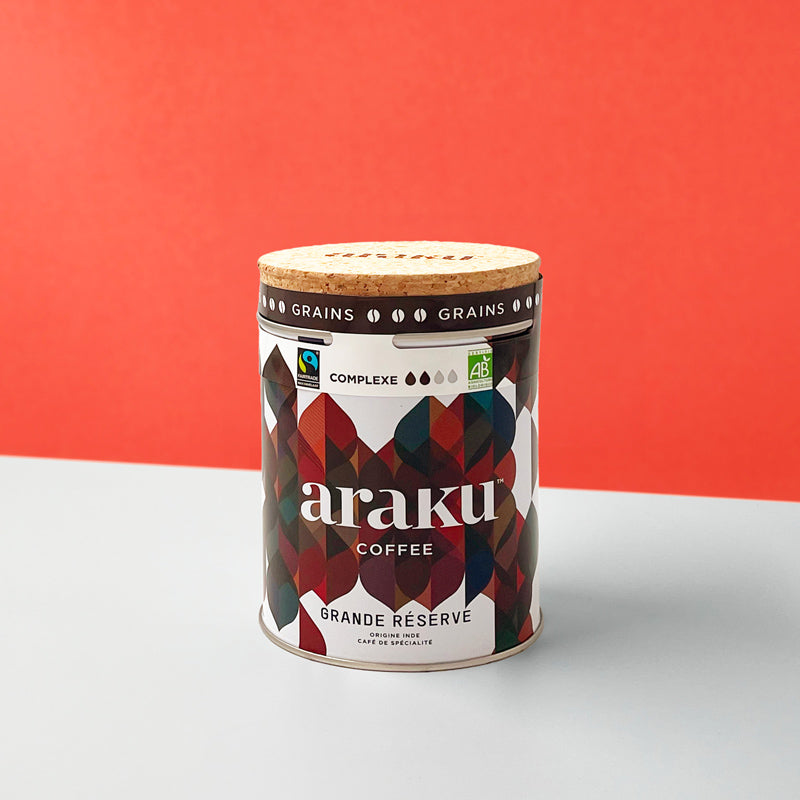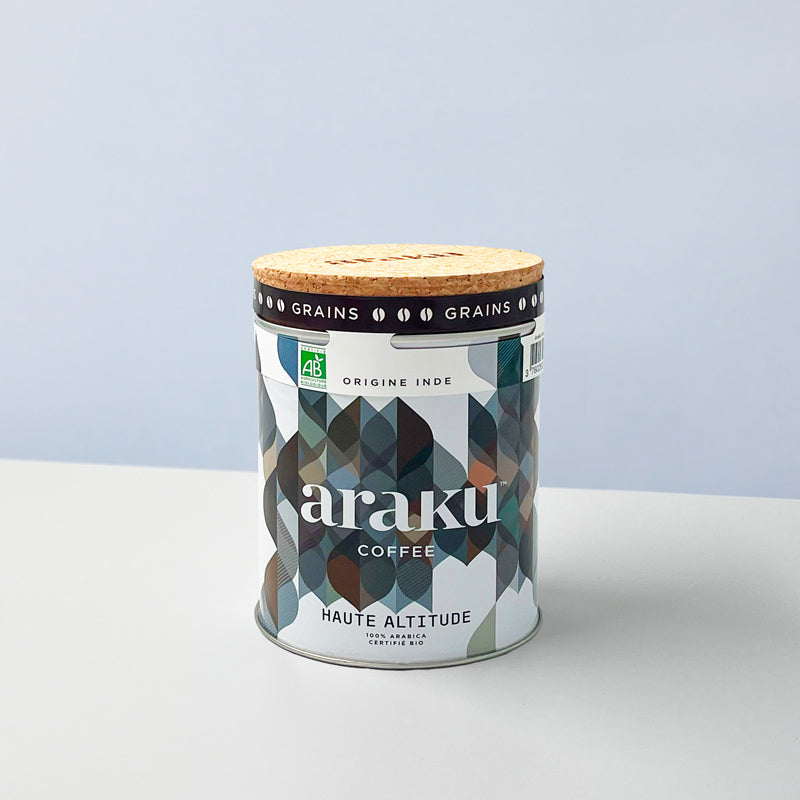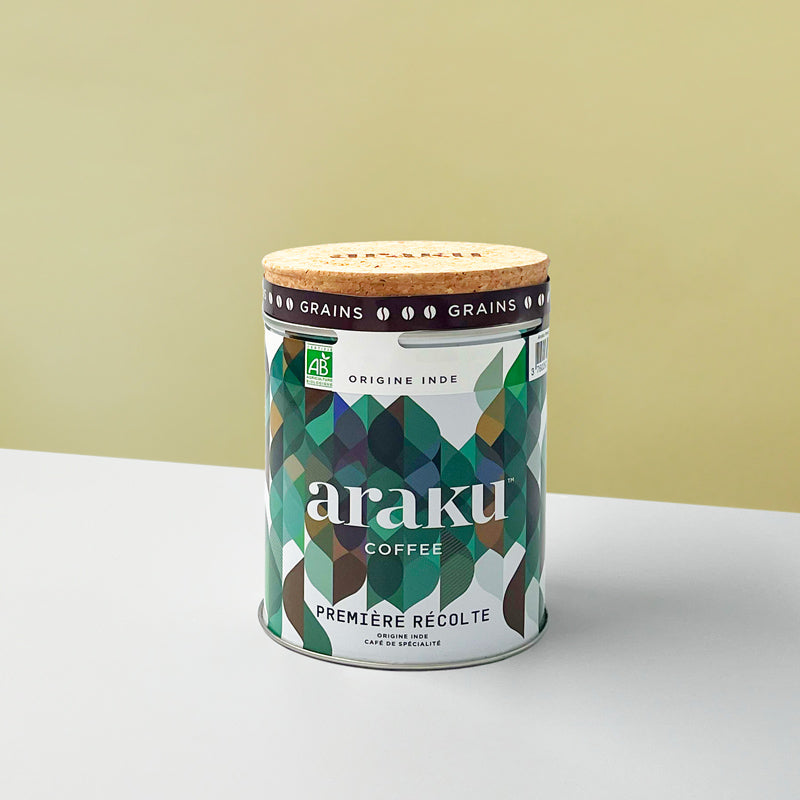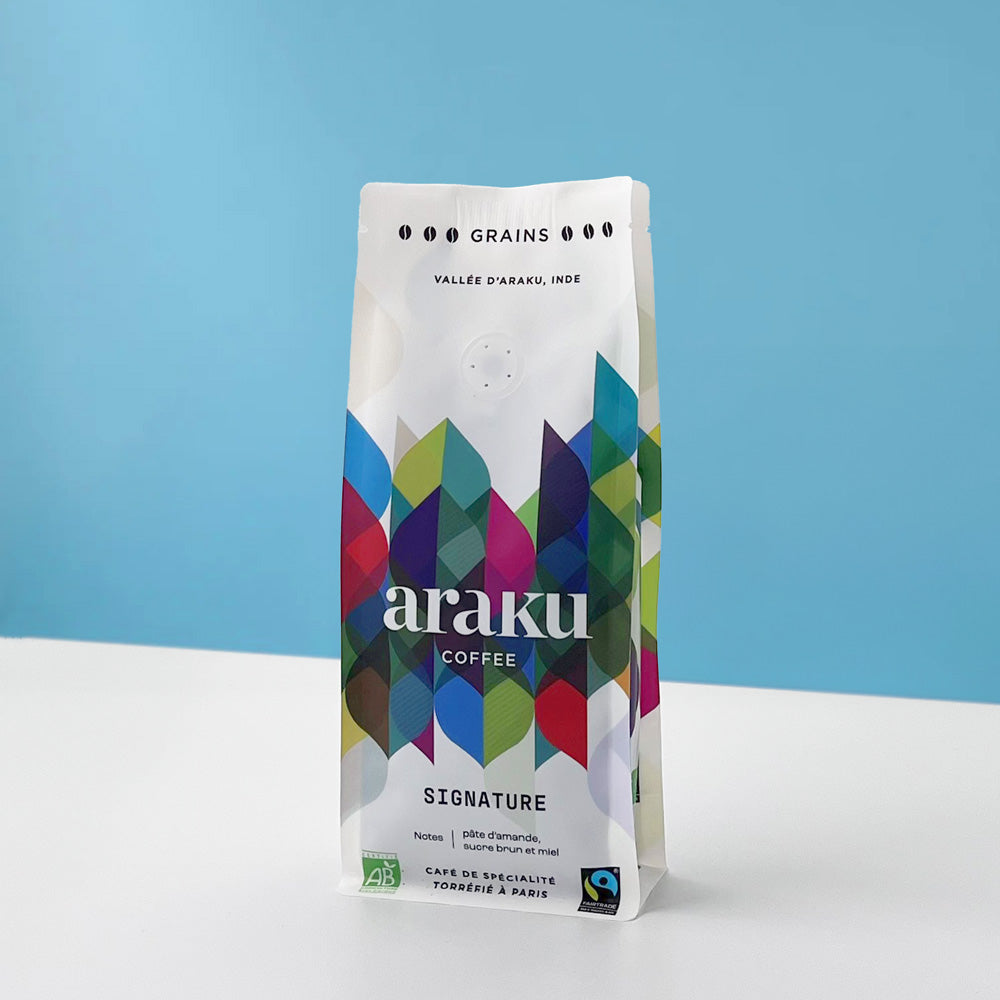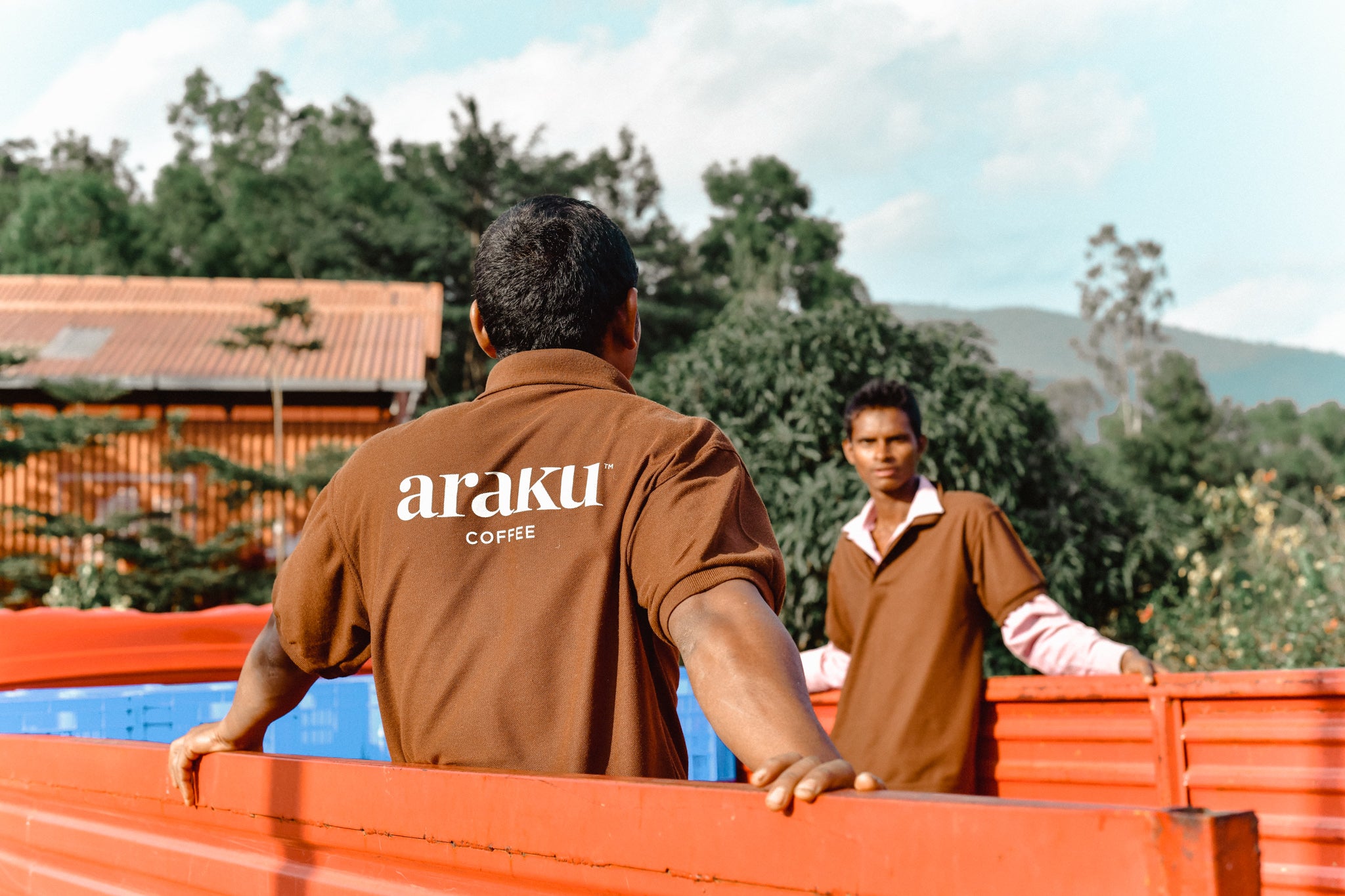The Fairtrade circuit
The Fairtrade label allows producers to be better paid and guarantee good working conditions. Depending on the world price of the product, producers with the Fairtrade label are paid 15% to 65% more than a traditional producer. However, brands are free to set the final selling price of the product in store. The share of the sale price that goes to producers depends on the value chain and varies enormously from one product to another.
For 15 years, the world price of coffee has never been so low; at the end of 2019, a pound (450g) of coffee cherries was worth €0.86. The Fairtrade label therefore allows producers to earn a maximum of €1.41 per 450g. On the French market, a coffee capsule is sold for around 40 cents and inside there is only 5g of coffee. I'll let you do the math: Fairtrade guarantees better remuneration, yes, but not fair remuneration! 1€41 has a much higher value in a coffee producing country than in a consuming country because the standard of living is not the same but it is not a price which reflects the hardness of the producers' work...
A circuit with too many intermediaries.
In the classic coffee circuit, that is to say where coffee brands do not go to meet producers to buy coffee directly from them but go through negotiation circuits, it is estimated that there are 30 intermediaries between the producer and the consumer. 30 intermediaries who will take a commission. This explains the high price of coffee for consumers compared to the purchase price from the producer. But why not work directly with producers? The margin would be the same but the producer could receive much more! This is what we do at Araku.
Araku, a very different story
Araku is not the story of a French brand which wanted to sell coffee in France and which went to meet producers. No, it’s a very different story! It's the story of an Indian, Manoj Kumar, who wanted to help his country. And his choice fell on the Araku valley, a magnificent valley in the east of India, in total isolation from the rest of the country, without technology, without currency or anything and with extremely high mortality. After helping the population, by building hospitals, eradicating childbirth mortality, sending children to school. The families asked for help to have an income, they themselves wanted to cultivate the coffee which once grew in the Valley. After millions of trees planted, support for farmers in organic cultivation, dozens of harvests, rather than letting producers sell coffee to intermediaries with bad intentions, Manoj Kumar had the crazy idea of launching a brand , In France. He decided to create a brand to guarantee good remuneration for producers. This is how Araku was born. And to guarantee a good standard of living the price is set by the producers themselves.
A price according to quality
The Araku valley is made up of ten villages far from each other. Thus each village has a very specific harvest day and a time during which a truck comes to collect the day's harvest. Each producer then comes with the cherries from his harvest and his account book. The baskets of cherries are weighed one by one and the color of the cherry is checked. Once the bundle has been weighed, the price is recorded in the account book of the family who made the harvest. Two days after the coffee arrives in the cooperative (in the center of the valley) the farmers receive a transfer to their bank accounts.
The price changes with each harvest, depending on the evolution of the price of coffee and depending on the evolution of living conditions in the valley (drought, bad harvests, etc.), but this price never decreases. It is the farmers' cooperative that sets a price. In 2019, Araku paid 2.5 times the world price of coffee in addition to 65% of the Fairtrade premium and the Organic premium .
Some farmers tell us that since they sold coffee directly to the cooperative, their annual income has increased 100-fold! This is the case of Sundaramma Boi, a widow who raised her children alone but that’s another story…

